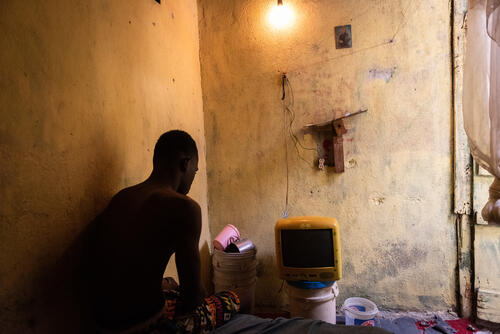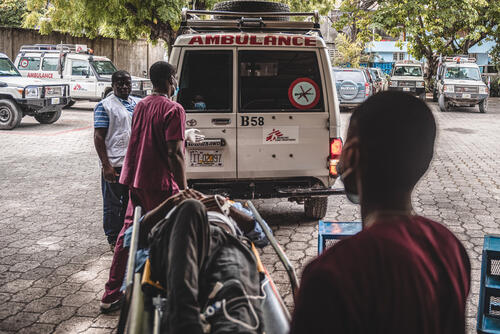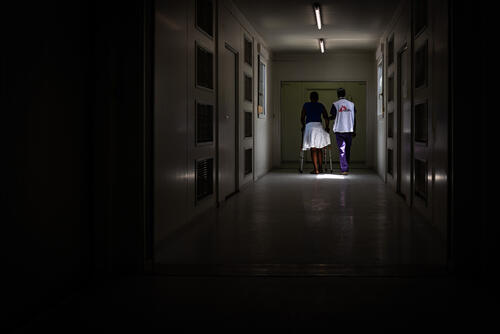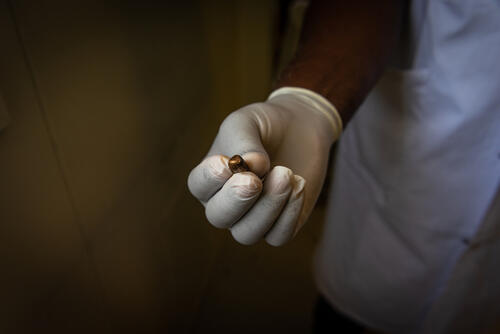Haitians seeking asylum in the United States (US) continue to be at risk of being expelled and sent back to a country in crisis. Haiti's capital, Port-au-Prince, has become a battleground between armed groups – thousands of people have fled their homes and many have extremely limited access to healthcare or basic services.
More than 26,000 Haitians were expelled from the US between September 2021 and June 2022. In May alone, the US government expelled nearly 4,000 Haitians.
Most Haitians have been expelled under Title 42.A health order invoked at the start of the COVID-19 pandemic that allows for the blocking and rapid expulsion of migrants, including people seeking protection at the US border. This devastating policy has effectively shut down asylum at the US southern border and has been used to authorise over two million expulsions from the US.
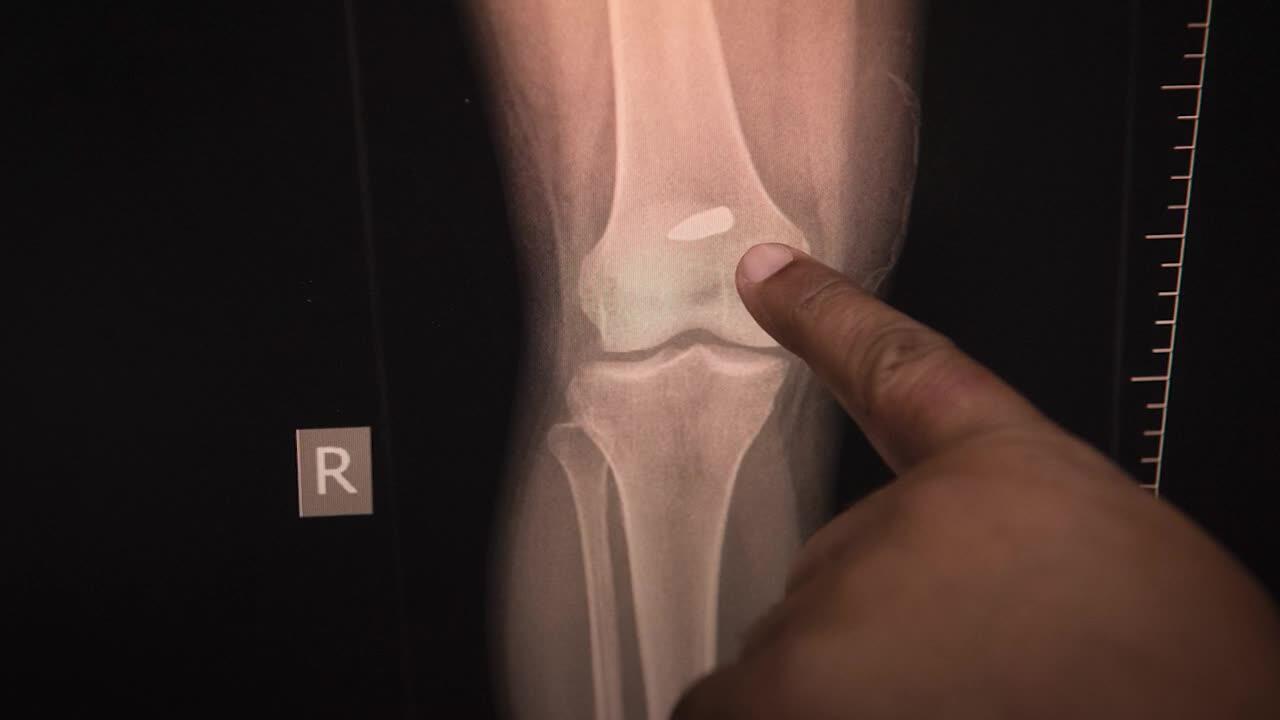
Haitian migrants: Nowhere to go
While deportation flights to Haiti have been paused since June, without a change in US policy, Haitians who arrive at the US border could still be expelled to what has effectively become a conflict zone, as armed groups have taken over large areas of the capital.
Fear, killings and kidnappings
More than half of the patients arriving at the Médecins Sans Frontières (MSF) hospital in Tabarre, Port-au-Prince, have suffered life-threatening wounds, often from high-powered firearms. Armed clashes in two neighbourhoods, Martissant and Cité Soleil, forced our teams to move longstanding medical programmes in 2021.
The United Nations has documented a sharp increase in violence this year,United Nations data on violence in Haiti https://news.un.org/en/story/2022/07/1122662 with 934 killings, 684 injuries and 680 kidnappings in Port-au-Prince from January to the end of June. Many people who have fled the violence are living in informal displacement sites within the city in appalling conditions.
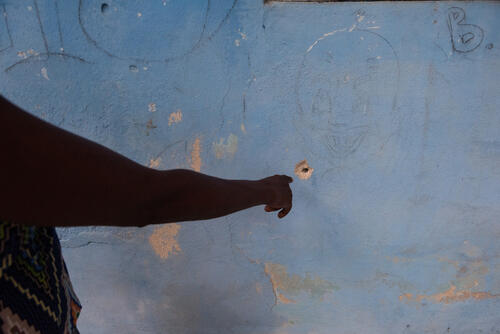
In recent months, armed clashes have again destroyed water networks and disrupted water truck deliveries in Bel Air and other neighbourhoods. Our teams are adapting to the current rise in violence and insecurity, operating mobile medical teams and providing water and sanitation facilities.
“We see an increase in kidnappings and killings and people telling us they don’t feel safe in their homes, and it’s not safe to leave the house either,” says Cédric Chapon, project coordinator for MSF’s urban violence programme in Port-au-Prince.
“Since the beginning of the year, we have seen an epidemic of scabies, which is not usual in Haiti. And this is directly linked to the lack of water. People can afford small quantities of drinking water, but they can’t access clean water in quantities needed for hygiene.”
The situation is also dangerous for MSF staff, some of whom are trapped by the violence, unable to leave their homes to come to work. In some areas, MSF staff must work in basements and windowless rooms to avoid the risk of stray bullets.
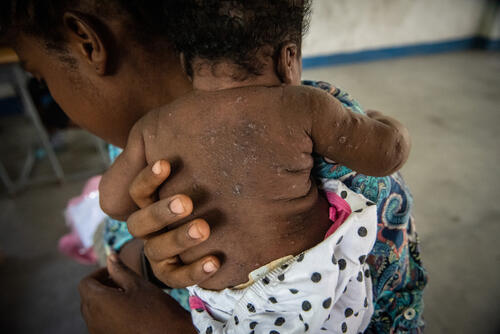
Haitian migrants face dangers crossing Latin America
Our teams also provide medical and mental health care along the migration route in the Americas, where for the past several years our teams have seen an increasing number of Haitians trying to reach the US.
Haitian migrants often have family and support networks in the US, but Title 42 forces them to take increasingly hazardous routes to get there, from South America through the extremely dangerous Darién jungle in Panama. From April 2021 to early May 2022, MSF teams working in Panama with patients who had crossed the Darién jungle treated 417 women for sexual violence.
The border between Mexico and the US is the final leg of their journey. In border cities such as Nuevo Laredo and Reynosa, they join other migrants who are also waiting to cross, in many cases to seek asylum in the US.
Migrants are often forced to sleep on the street, in abandoned structures, or in makeshift camps. Access to healthcare, food and basic services is limited and these cities are extremely dangerous, particularly for migrants, who are vulnerable to violence, including kidnapping and sexual assault.
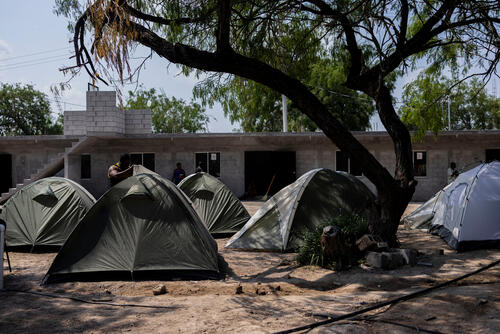
Antogama Honoraí, 23, left Haiti for Brazil in 2019, but there wasn’t work for him there. So he set out for the US, traversing Colombia and Central America before reaching Mexico, where he has stayed for five months so far.
“I’m here because I want to go to the US and help my family,” he says. “In the US I have family. Here I’m alone. Here there’s nowhere to sleep. Yesterday it rained all day and I slept in dirty water. I don’t want to go back to Haiti. There’s no school there, there’s no food there, there’s no work.... Returning to Haiti means death.”
Seeking safety is not a crime
“In that jungle you will die if you don’t have a good strategy,” says Louckensia Paul, 28, recalling her journey through the Darién jungle in Panama. “It’s a dangerous place. There are wild animals and routes that are not accessible and difficult crossings. There’s a point where you run out of food and you have to use all your strength to try to get out of there.”
In Texas, I was put on a bus in chains – around my waist, on my ankles and hands.Louckensia Paul, 28, was deported from the US after fleeing Haiti
Louckensia was interviewed in Nuevo Laredo in May, attempting to reach the US a second time. In December 2021, after traversing nine countries and risking her life crossing the Darién jungle, she reached the US, spent seven days in US detention and was quickly expelled back to Haiti.
“In Texas, I was put on a bus in chains – around my waist, on my ankles and hands,” she says. “I thought about the entire trip, and the sacrifices I made, for them to do that to me and treat me like a criminal.”
MSF has repeatedly called for an end to Title 42 and an end to expulsion flights to Haiti on humanitarian grounds. Haiti is in the middle of a humanitarian, economic and political crisis. No country should be sending people back to Haiti. The US must permanently end all deportation flights and further facilitate access to asylum processes for Haitians.



